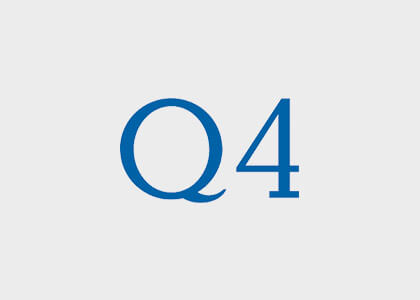Venture Capital in 2021: Expectations, Predictions and Areas of Growth
Against seemingly impossible odds, 2020 – the “pandemic year” – also proved to be a resilient one for the global venture capital industry. With worldwide VC funding hitting $300 billion last year, according to Crunchbase, this haul represents a 4% increase from 2019, and is second only to 2018 in total venture investment captured by startups.
But under the hood of these flashy topline stats, funding data revealed an “increasingly concentrated industry” with a wide gap in outcomes between early-stage startups and more established stars, according to a joint report published by Pitchbook and trade group, the National Venture Capital Association, last month.
In the U.S., Pitchbook and the NVCA found that late-stage companies accounted for 28.8% of total U.S. VC deal count and 66.7% of value last year. The North American venture trendline is merely a microcosm of broader global phenomenon favoring more battle-tested ventures.
In Canada, investments in late-stage companies accounted for even higher share of VC investments – in Q3 alone 45% of capital went into growth-stage businesses, according to CVCA report.
In the enterprise sector, VC money is tracking the pandemic-induced macro shifts that have accelerated existing digital-transformation initiatives and also created new ones. Preexisting trends include the surge of high-dimensional big data (HDBD), growing demand for open-innovation technologies like APIs, proliferating mobile banking activity, and fast-paced digital payment adoption.
The latter points speak to the rise of financial technology (FinTech). VC-backed FinTechs raised $41.7 billion last year, according to PitchBook data. The sector has already notched nearly $2 billion in funding to kick off the new year.
Another mission-critical category is cybersecurity. In the era of complex cloud transformation, the Vesuvian eruption of high-dimensional big data, API integrations, and more labyrinthine and interconnected IT supply chains, the enterprise’s digital attack surface has grown exponentially. Human dislocations caused by the pandemic have aggravated the problem significantly.
Some notable COVID-specific disruptions to enterprise operations include the mass- decentralization of labor via increasingly remote work arrangements and emerging corporate finance solutions that have become increasingly vital to preserving working capital.
Given these macro trends, Information Venture Partners sees a broad runway of opportunity this year in our core focus areas – B2B Fintech, SaaS for Financial Services, Cybersecurity and Financial Software. In this post we will expand on some of the thesis areas we are currently exploring under each of our four investment sleeves.
B2B FinTech
Information Venture Partners expects to see continued growth in FinTech infrastructure companies focused on building the open, financial infrastructures of the future. Banking-as-a-service (BaaS) is one such vertical that presents a strong platform opportunity and will continue to capture VC interest this year.
This year, BaaS companies will continue to flourish, as traditional banks seek to access new customers and FinTech’s look to access core banking products, without jumping through regulatory hoops. B2B FinTech innovation will thus set the stage for heightened and more efficient collaboration between incumbents and upstarts.
In the first two weeks of January, B2B payments, time and expense, financial management and other sub-categories had already raised $600 million. These businesses don’t just aim to offer front-end applications, but instead supply the open architectures that allow financial enterprises to develop and manage their own set of modern FinTech products.
We will also continue seeing more insurtech companies – players that don’t sell their proprietary software to other insurers, but rather use it to run their own insurance business, differentiated through more nuanced, accurate, and competitive pricing and reserve management algorithms.
SaaS for Financial Services
Data governance and process automation will remain a priority for firms this year, as they try to optimize resources and offset capital strain caused by the pandemic. In 2021, data governance will be at the forefront, with a growing number of firms opting for data-centric architectures, as opposed to siloed repositories tailored for individual applications.
In practice, this means more organizations will look to implement a shared core data model that can be used by any of its applications and can evolve with business needs. Process automation will also continue to be a strong trend, with a focus on middle and back-office finance functions, where inefficient manual processes and excel spreadsheets remain the norm.
Financial Software
Information Venture Partners believes FinOps will increasingly become a key focus for the enterprise this year. Similar to the way DevOps address development efficiency, FinOps is the practice of bringing financial accountability to variable spending on cloud and infrastructure services.
These technologies enable teams to make better-informed business trade-offs between spend, cost, and quality. As firms continue to leverage cloud-based technologies and products from various FinTech’s, there will be an increased need for tools to better manage spend and optimize ROI across the enterprise. These types of ventures should attract strong VC interest this year, as enterprise finance teams aim to manage pandemic-era budgets more cautiously.
Cybersecurity
The proliferation of enterprise-FinTech partnerships has made API and data-transmission security more vital than ever before. In 2017, market research firm Gartner predicted that APIs would become the most frequent attack vector for enterprise data breaches.
This underscores the rise of IT supply chain attacks like the devastating SolarWinds breach that impacted at least five U.S. federal agencies and even venerable, American cybersecurity firms like FireEye. In the age of open-banking and continuously expanding API integrations, every connection, developer, and vendor compounds cyber-risk for the enterprise.
With growing enterprise and regulatory focus on data privacy and protection, organizations will increasingly seek to enhance security controls around data-in-transit. This sentiment is shared by enterprise CISOs and security professionals, especially as data transfer through API becomes the industry standard. Beyond endpoints and networks, ventures focused on API security will thus attract the attention of VCs this year.
Cheers to a Better Year
After a historically disruptive year, the global economy seems to be on the path to recovery. While it is unlikely that enterprises will return to the way things were, the pandemic accelerated the trajectory of the 4th Industrial Revolution and all of the operational risks that next-generation innovation portend.
In today’s ‘new normal’ B2B FinTech, financial services technologies, financial software for enterprises, and cybersecurity are all experiencing dynamic and accelerated demand. It is gratifying to see that our focus areas are not only standing the test of time but positioning our fund family to continue to generate industry leading returns in the future.






























